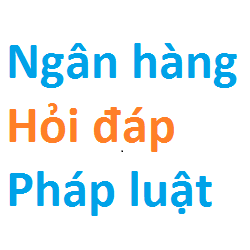If the borrower dies, what will handling for the loan contract in Vietnam?
 Bấm vào đây để xem bản dịch tiếng Việt của bài viết này
Click HERE to see the Vietnamese translation of this article
Bấm vào đây để xem bản dịch tiếng Việt của bài viết này
Click HERE to see the Vietnamese translation of this article
If the borrower dies, what is handling for the loan contract in Vietnam? Do relatives have right to refuse to pay debts left by deceased in Vietnam? Under what circumstances will the obligation to pay be terminated in Vietnam?
Hello, recently there have been many cases of suicide due to default, these debts are large, all of which are signed by the deceased person. Due to inability to pay, the borrower committed suicide. Please ask, if the borrower dies, what is handling for the loan contract? Does the relative of the deceased have the right to refuse to pay under the contract the deceased signed?
Please advise. Thankyou.
If the borrower dies, what is handling for the loan contract in Vietnam?
Article 422 of the 2015 Civil Code provides for termination of contracts as follows:
A civil contract shall terminate in any of the following cases:
1. The contract has been completed;
2. The parties so agree;
3. Where a contract is only able to be performed by a particular natural person or juridical person having entered into the contract, and that particular natural person dies or that juridical person ceases to exist.
4. The contract is cancelled or unilaterally terminated;
5. The contract is not able to be performed because the subject matter of the contract no longer exists;
6. The contract terminates as prescribed in Article 420 of this Code;
7. Others circumstances as provided by law.
In addition, Article 615 of the 2015 Civil Code provides for performance of property obligations left by deceased as follows:
1. A person entitled to an inheritance has the responsibility to perform the property obligations within the scope of the estate left by the deceased, unless otherwise agreed.
2. Where an estate has not yet been divided, the property obligations left by the deceased shall be performed by the administrator of the estate as agreed by the heirs.
3. Where an estate has already been divided, each heir shall perform those property obligations left by the deceased corresponding to, but not exceeding, that part of the estate that the heir has inherited, unless otherwise agreed.
4. Where the heir inheriting an estate under a will is not a natural person, it must perform the property obligations left by the deceased in like manner as a natural person.
According to the above provisions in Vietnam, the loan contract will terminate when the borrower dies. However, when the borrower dies, his or her heirs must fulfill the debt repayment obligation to the extent of the inherited estate, unless otherwise agreed with the lender. In case the deceased does not have any assets to inherit, the loan contract will be terminated according to regulations.

Do relatives have right to refuse to pay debts left by deceased in Vietnam?
In Article 620 of the 2015 Civil Code, disclaimer of inheritance is as follows:
1. An heir may disclaim an inheritance, unless such disclaimer is for the purpose of avoiding the performance of its property obligations to other persons.
2. A disclaimer of an inheritance must be made in writing. A person disclaiming must notify the other heirs and the person authorized to distribute the estate.
3. The disclaimer of an estate must be expressed before the time of inherit distribution.
Thus, according to the regulations in Vietnam, when the borrower dies, the loan contract will terminate, so the relative can refuse to pay the debt according to the contract the deceased signed. However, in case a relative inherits the deceased's property, he/she must perform the payment obligation under the loan contract. According to this Article, relatives are not entitled to refuse to receive property when they know they have to fulfill their debt repayment obligations for the deceased.
Under what circumstances will the obligation to pay be terminated in Vietnam?
In Article 372 of the 2015 Civil Code, termination of civil obligations is as follows:
A civil obligation shall terminate in any of the following cases:
1. The obligation is fulfilled;
2. The parties so agree;
3. The obligee waives performance of the obligation;
4. The obligation is substituted by another civil obligation;
5. The obligation is offset;
6. The obligee and the obligor merge;
7. The prescriptive period for a release from the civil obligation has expired;
8. The obligor being a natural person dies, or the obligor being a juridical person ceases to exist, and the obligation must be performed by that particular natural person or juridical person;
9. The obligee being a natural person dies and the right to demand does not form part of the bequeathed estate, or the obligee being a juridical person ceases to exist and the right to demand is not able to be transferred to another juridical person;
10. A distinctive object which is the subject matter of the civil obligation no longer exists and is substituted by another civil obligation.
11. Other cases as provided by law.
The above are cases in which the loan repayment obligation will be terminated in accordance with the law in Vietnam.
Best Regards!
-
Editorial Board of LawNet
- Số 19 Nguyễn Gia Thiều, P. Võ Thị Sáu, Q.3, TP. HCM.
- Click to See more

